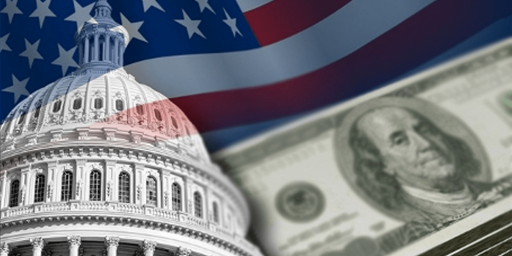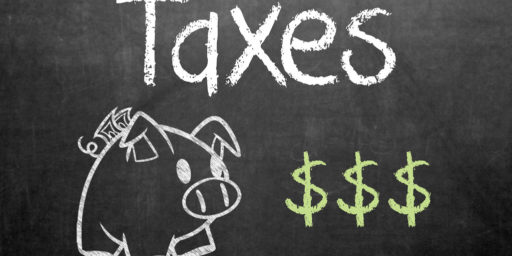The Budget Deficit
The CBO released its Budget and Economic Outlook Update for August and the budget numbers are rather interesting.
CBO expects the 2007 deficit to total $158 billion—a $90 billion decline from the deficit recorded for 2006 (see Summary Table 1). Relative to the size of the economy, the deficit this year is expected to equal 1.2 percent of gross domestic product (GDP), down from 1.9 percent in 2006.
The deficit for 2007 is now expected to be $19 billionlower than the amount that CBO estimated in March.1
Sounds pretty good doesn’t it. And looking at the graphs we get a picture that also looks pretty good.

However, there are some things to keep in mind. First is that these projections are taking existing law as a given. That is that Bush’s tax cuts are allowed to expire. Given that both the House and the Senate are in the hands of the Democrats this is probably what is going to happen. However, there are a couple of things to consider. First, the economy has been showing signs that the sub-prime melt down is starting to spill over into other parts of the economy. In addition, oil prices have hit new nominal highs. In other words, a recession could be coming and the above projections assume a full employment economy. If the economy weakens substantially then that nice budget projection could disappear returning to deficits.
So, if there is a temptation to claim that the tax cuts worked in raising revenues to balance the budget, this would be rather misleading. After all, the budget is to return to balance only after the tax cuts expire. Extending the tax cuts would likely result in lower revenues and budget deficits. Also, given that the economy is showing signs of considerable weakness right now, it is quite likely that whatever benefits the tax cuts have provided will have faded. Further, if you look at the area below the zero line and above the deficit surplus line, it is obvious that the debt incurred over the past few years will take many more years to compensate, and recession in the next year would simply add to the number of years necessary to counter the run up in debt. This isn’t to say that the tax cuts were bad. They very well may have provided some economic stimulus right as the economy was sliding into a recession. A more objective assessment is that the tax cuts came with both costs and benefits, like pretty much everything in life.





Your analysis is all too short term. We should be running huge surpluses right now to stash away for all the entitlement spending on boomers that we won’t have the guts (or votes) to deny them. That we are not taxing the heck out of boomers in the last, best years of their income producing lives is one of the great mistakes in US history, one that we could only correct by big changes to Medicare now before it is too late. I’d prefer low taxes and lower entitlements but if six years of GOP President and Congress only made that worse (see drug bill), how is that going to ever happen?